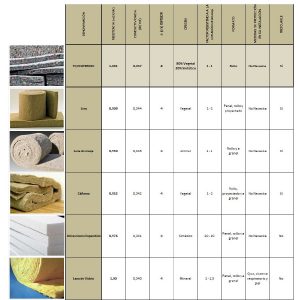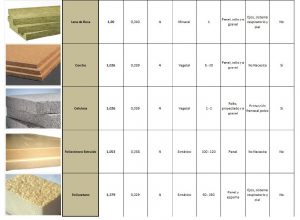TQ ECOTERMIC differs from other thermal insulators because it is an ecological thermoacoustic insulator made from recycled cotton fibers. This eco-technology improves the thermal and acoustic comfort of living spaces, contributes to energy savings, and reduces reverberation time and sound level.
This form of eco-friendly insulation is breathable, elastic, and durable, so it is resistant to rot and does not create mold. It is also permeable; therefore, it prevents condensation and is resistant to biological attacks; that is, it does not attract rodents or other animals. Below, we can see a table where we find TQ ECOTERMIC compared to insulators made with other types of materials.


As we can see in the comparison table, TQ ECOTERMIC is the recyclable thermal insulator with the greatest resistance. TQ ECOTERMIC is distinguished from other ecological insulators, such as glass wool insulation, by being a 100% recyclable material and by having greater intrinsic resistance to heat transmission.
Secondly, it is not necessary to have special protection to place TQ ECOTERMIC because it does not irritate the skin or respiratory tract. Plus, it’s versatile, easy to install, and won’t tear or fray. However, to place a glass wool insulator, it is necessary to have specific protective measures to protect the eyes, respiratory system, and skin during installation. On the other hand, TQ ECOTERMIC has a lower CO2 footprint than mineral wool (rock wool and glass wool) used as thermal insulators.
Thermal conductivity of TQ ECOTERMIC

Continuing with the comparison, the TQ ECOTERMIC ecological insulator has a lower range of thermal conductivity than other recyclable materials (linen, sheep’s wool, hemp, cellulose/cork). Lower conductivity leads to better insulation.
Finally, the percentage of environmental impact of TQ ECOTERMIC is 11%, much lower than that of other traditionally used materials such as XPS Expanded Polyethylene, which is 421%, rock wool with 38%, or fiberglass glass with 34%.
In summary, TQ ECOTERMIC is a 100% recyclable, recycled, natural, reusable, and non-polluting thermoacoustic insulator that offers greater thermal and acoustic comfort. At the same time, it provides energy savings and greater energy efficiency.

